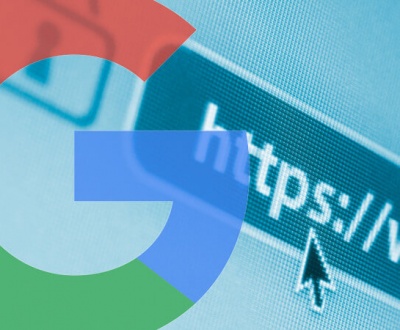John Mueller at Google must have a pet peeve against the misinformation domain name registrars push out about TLDs and SEO. He has time and time again said they play no role in ranking at Google.
But that didn’t stop John and Google from posting something official on the Google blog yesterday. John said Google has heard “questions and misconceptions” about the new TLDs and wanted to set the record straight. On Google+ John said the short version:
Somewhat simplified: if you spot a domain name on a new TLD that you really like, you’re keen on using it for longer, and understand there’s no magical SEO bonus, then go for it.
But the blog post has the full FAQs, but again, none of this is new:
Here are the past stories we covered when John Mueller spoke publicly about TLds and SEO:
- Google: We Currently Treat New TLDs As gTLDs
- Google’s John Mueller: Domain Name Search Engine Registration Is A Scam
- Google: New TLDs Have No Inherent Search Ranking Advantage
- Google: ccTLD & Wildcard Subdomain Strategies Won’t Give You An “Unnatural Advantage”
Here is the FAQs as posted:
Q: How will new gTLDs affect search? Is Google changing the search algorithm to favor these TLDs? How important are they really in search?
A: Overall, our systems treat new gTLDs like other gTLDs (like .com & .org). Keywords in a TLD do not give any advantage or disadvantage in search.
Q: What about IDN TLDs such as .みんな? Can Googlebot crawl and index them, so that they can be used in search?
A: Yes. These TLDs can be used the same as other TLDs (it’s easy to check with a query like [site:みんな]). Google treats the Punycode version of a hostname as being equivalent to the unencoded version, so you don’t need to redirect or canonicalize them separately. For the rest of the URL, remember to use UTF-8 for the path & query-string in the URL, when using non-ASCII characters.
Q: Will a .BRAND TLD be given any more or less weight than a .com?
A: No. Those TLDs will be treated the same as a other gTLDs. They will require the same geotargeting settings and configuration, and they won’t have more weight or influence in the way we crawl, index, or rank URLs.
Q: How are the new region or city TLDs (like .london or .bayern) handled?
A: Even if they look region-specific, we will treat them as gTLDs. This is consistent with our handling of regional TLDs like .eu and .asia. There may be exceptions at some point down the line, as we see how they’re used in practice. See our help center for more information on multi-regional and multilingual sites, and set geotargeting in Search Console where relevant.
Q: What about real ccTLDs (country code top-level domains) : will Google favor ccTLDs (like .uk, .ae, etc.) as a local domain for people searching in those countries?
A: By default, most ccTLDs (with exceptions) result in Google using these to geotarget the website; it tells us that the website is probably more relevant in the appropriate country. Again, see our help center for more information on multi-regional and multilingual sites.
Q: Will Google support my SEO efforts to move my domain from .com to a new TLD? How do I move my website without losing any search ranking or history?
A: We have extensive site move documentation in our Help Center. We treat these moves the same as any other site move. That said, domain changes can take time to be processed for search (and outside of search, users expect email addresses to remain valid over a longer period of time), so it’s generally best to choose a domain that will fit your long-term needs.
Forum discussion at Google+ and WebmasterWorld.
This article was originally published at https://www.seroundtable.com/google-new-tlds-seo-20630.html
About us and this blog
We are a digital marketing company with a focus on helping our customers achieve great results across several key areas.
Request a free quote
We offer professional SEO services that help websites increase their organic search score drastically in order to compete for the highest rankings even when it comes to highly competitive keywords.
Subscribe to our newsletter!
Recent Posts
- Facebook adds new tools for local discovery and commerce 19th October 2016
- So we have 45 more characters in AdWords text ads… Now what? 8th August 2016
- How Pokemon Go Is Driving Insane Amounts of Sales at Small, Local Businesses 11th July 2016










Pingback: cialis 20mg pharmacy
Pingback: cialis 5 vs 20 picture
Pingback: generic viagra buy uk
Pingback: can you buy nexium over counter
Pingback: prednisolone price
Pingback: how to buy flomax
Pingback: depakote 250 mg tablets
Pingback: pictures of allegra pills
Pingback: cheapest place to buy januvia
Pingback: cialis 20 mg prijs belgie
Pingback: where to buy diclofenac online
Pingback: buy cheap prilosec otc
Pingback: buy colchicine india
Pingback: order lasix online no prescription
Pingback: buy neurontin no prescription
Pingback: cialis 2.5mg 20mg
Pingback: cialis 20 mg is the same as 4 pills 5 mg
Pingback: methotrexate ebewe buy
Pingback: olanzapine prices
Pingback: toradol pills
Pingback: cheap toradol
Pingback: buy lasix furosemide
Pingback: buy celebrex pfizer
Pingback: order celebrex
Pingback: cheaper alternative claritin
Pingback: cheap lipitor no prescription
Pingback: seroquel generic
Pingback: buy zofran cheap
Pingback: rocket play casino real money
Pingback: ringmaster casino real money
Pingback: best free casino games win real money
Pingback: buy prednisone 2023
Pingback: buy glucophage metformin no prescription
Pingback: diphenhydramine 2023
Pingback: fluoxetine 2023
Pingback: cialis 50 mg dosage
Pingback: sildenafil citrate 25mg buy
Pingback: cialis 5%
Pingback: cialis 5mg sale
Pingback: cost of cialis 20 mg at walgreens
Pingback: new online casino usa real money